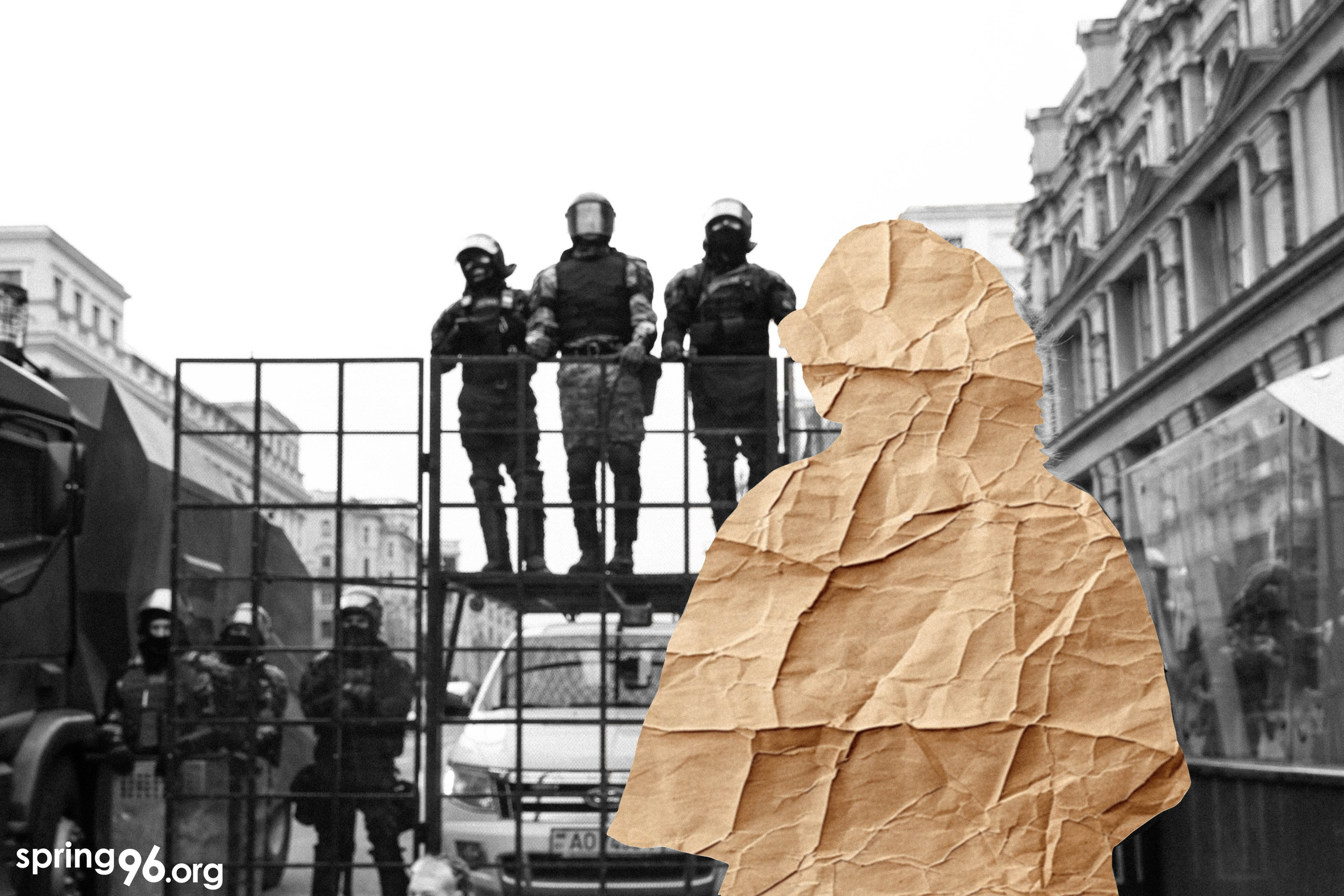"The conveyor belt of undisguised censorship." What materials are recognized as "extremist" in Belarus
As of November 1, 2024, 6,565 items were included in the republican list of extremist materials. At the moment, the courts of Belarus have issued 3406 decisions on the recognition of "extremist" materials. How are the materials recognized as "extremist"? How are the trials conducted? Is it possible to appeal such a decision? The Viasna legal service answers these questions.

- Collage: spring96.org
The recognition of materials as extremist consists of four stages:
-
Initiative. Government agencies fighting extremism (from the Ministry of Internal Affairs to the Ministry of Information) submit a request to special commissions.
-
Evaluation. Commissions analyze materials for signs of extremism.
-
Trial. After the assessment, the case is transferred to the court, which makes the final decision. The hearings take place behind closed doors, and the content of the materials is not disclosed.
-
Inclusion in the list. After the trial, the materials are put on the republican list of extremist materials by the Ministry of Information.
More details about each stage.
Initiative
The process of recognizing materials as extremist begins with notification from the state bodies responsible for countering extremism to the commission for evaluating the information on the signs of "extremism".
|
For example, the eighth GUBOPiK Directorate for the Homieĺ region initiated the recognition of Viasna materials as "extremist." On January 27, 2022, the Čyhunačny District Court of Homieĺ satisfied the application and made an appropriate decision. |
According to lawyers, to make the process of recognizing materials as "extremist" faster, changes were made to the legislation in October 2023. According to them, the initiators should not only report but also describe the circumstances of the dissemination of such materials, as well as indicate possible signs of "extremism", that is, provide the commission with as much information as possible to make an appropriate decision.
Thus, in the process of recognizing materials as extremist, a large role is assigned to bodies countering extremism.
Evaluation of materials for "extremism"
Commissions for evaluating information for the signs of "extremism" are subordinate to the Ministry of Information and work at the expense of its budget.
"The assessment is politically motivated. It is carried out by members of the commissions who simultaneously hold government positions or have connections with government agencies, and without proper analysis and justification.
The process of recognizing products as extremist materials by members of the commissions cannot be called objective, transparent, and expert-driven. At the same time, vague requirements are imposed on them at the legislative level regarding the composition, tasks, rights, and obligations of commission members, as well as the rules of decision-making," the lawyers note.
Trial
The court handles the statement of the initiator through special proceedings. The hearing takes place behind closed doors, and the content of the materials and the reasons for the recognition are not disclosed.
Inclusion in the official list
A copy of the court's decision on the recognition of information as "extremist materials" that has entered into force is sent to the republican mass media administration body to include this information in the republican list of extremist materials to be posted on the website of this body.
The content of information products included in the republican list of extremist materials is not subject to disclosure.
Appeal
At the stage of evaluating materials on the subject of extremism, only state bodies that have submitted an appropriate appeal can send a complaint to the republican assessment commission.
"Thus, the appeal appears here not for the purpose of restoring violated rights, but for the purpose of monitoring the activities of the commissions, in case they do not find any 'extremism' in the materials, since the bodies that initiated the process are clearly interested in recognizing as many materials as possible as extremist. This fits into their tasks — countering extremism. Moreover, they must regularly report on how they carried out work on countering extremism," the lawyers say.
The Law on Countering Extremism does not stipulate a procedure for excluding information products from the list. The cancellation of the relevant court decision may likely be the basis for excluding the material from the list, but in practice, such cases have not been recorded.
Mass recognition of influencer websites as "extremist materials"
The list of extremist materials stipulates their prohibition and administrative liability for interaction with them under Article 19.11 of the Administrative Code (distribution, production, publication, storage, or transportation for distribution purposes) with the imposition of a fine, community service, or administrative arrest for up to 15 days.
"The influencers simply got onto the conveyor belt of undisguised censorship. The commissions, and then the courts, do not evaluate the materials from the point of view of true extremism, but from the point of view of disloyalty to the regime. Moreover, recognizing materials as extremist can be endless due to the lack of specific and exhaustive grounds, as long as there are broad formulations in legislation and political will."

















